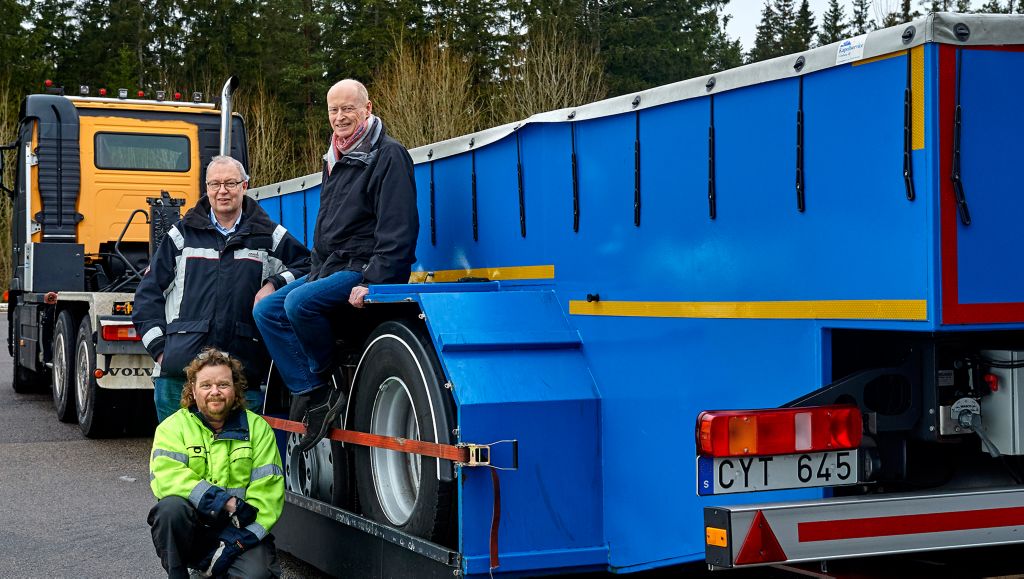Sophisticated trailer measuring fuel consumption


Rolling resistance has a major impact on fuel consumption. The characteristics of the road, the speed, wind speed, pressure and temperature are a few factors that influence the measurement results.
To determine the rolling resistance, the testing team use a trailer attached to a truck. The trailer has twin axles, so that both single and dual formation can be tested. Their properties are measured using the sophisticated equipment on the trailer. The measurement results also vary from one day to the next, so to enable comparison of measurements from different days, all the results are converted into a standard scenario.
All the data is then sent to the Chalmers University of Technology for processing.
“We need to understand the relationship so that we can then set out requirements for our tyre suppliers. We already have a positive dialogue with our suppliers, but the more we know, the better things will be for our customers, and ultimately the environment,” he continues.
The tests are performed at the Group’s Hällered test track, near the town of Borås in western Sweden. Morgan Alexandersson, measurement mechanic, has driven the truck and its trailer round many, many laps of the test track. And the laps were not the same.
“I’ve done 758 laps so far,” he says with a smile.
Alexandersson’s laps follow a schedule, where the tyres are replaced at fixed intervals and the conditions are changed. This allows for the most accurate result possible for rolling resistance compared to other types of tyres.
Larsson believes that the Volvo Group is probably the market leader when it comes to this kind of testing.
“There aren’t many heavy vehicle manufacturers who do this kind of thing. It’s more common for cars,” he reveals, going on to explain that more and more emphasis is being put on the significance of rolling resistance.
“It used to be mostly about how long a tyre would last, but knowledge about how rolling resistance affects fuel consumption has increased and improved. Over a 10-year period, the measurements have shown that tyre rolling resistance has improved on average 20-30%. That would translate to a saving of 5-10% in terms of fuel consumption. Every time the manufacturers release an update, the tyres get even better and the fuel savings increase further. So, we’re on the right track,” he says.
Larsson and Krister Fredriksson hope that their tests and the results they produce will have an impact on the quality of the tyres of the future.
“Just as we, as consumers, have a range of classes to choose between when we buy something like a fridge, so there is a corresponding system for truck customers when it comes to the properties of their tyres, and how they affect the environment and fuel consumption. A label providing information such as rolling resistance needs to be placed on tyres at the point of sale so that customers are in a position to make a better choice,” Larsson says. He tells us that the Volvo Group works with the most reputable tyre manufacturers, thereby gaining the opportunity to test out tyres a number of years before they go on sale.
The tests at Hällered are continuing, and Morgan Alexandersson has a lot of laps ahead of him.
“It’s exciting, and it’s important. If we can help our customers, I don’t mind driving a few more laps,” he concludes.